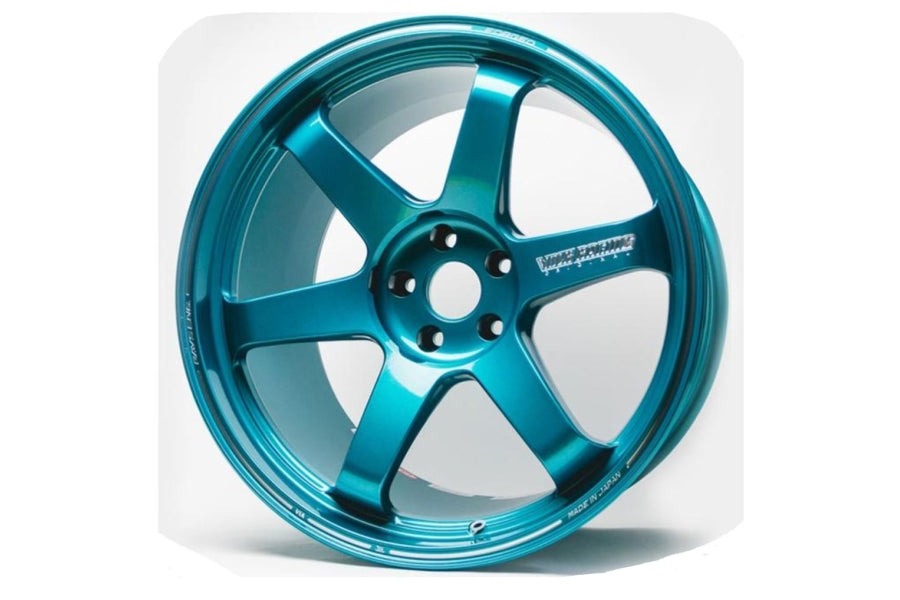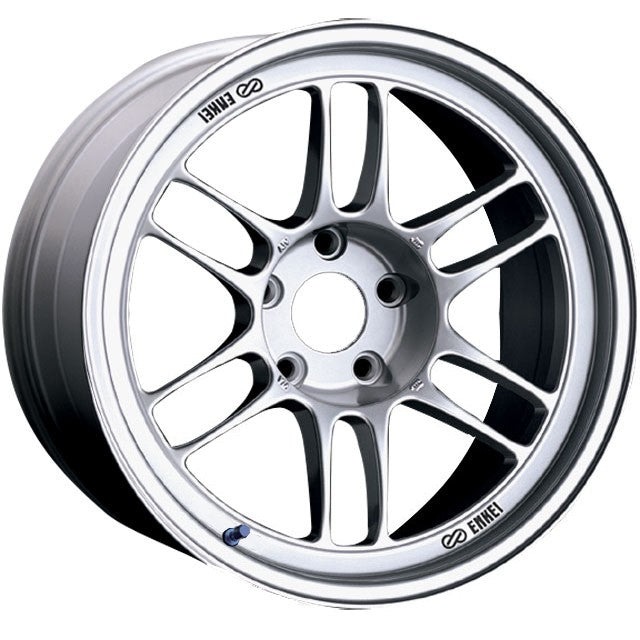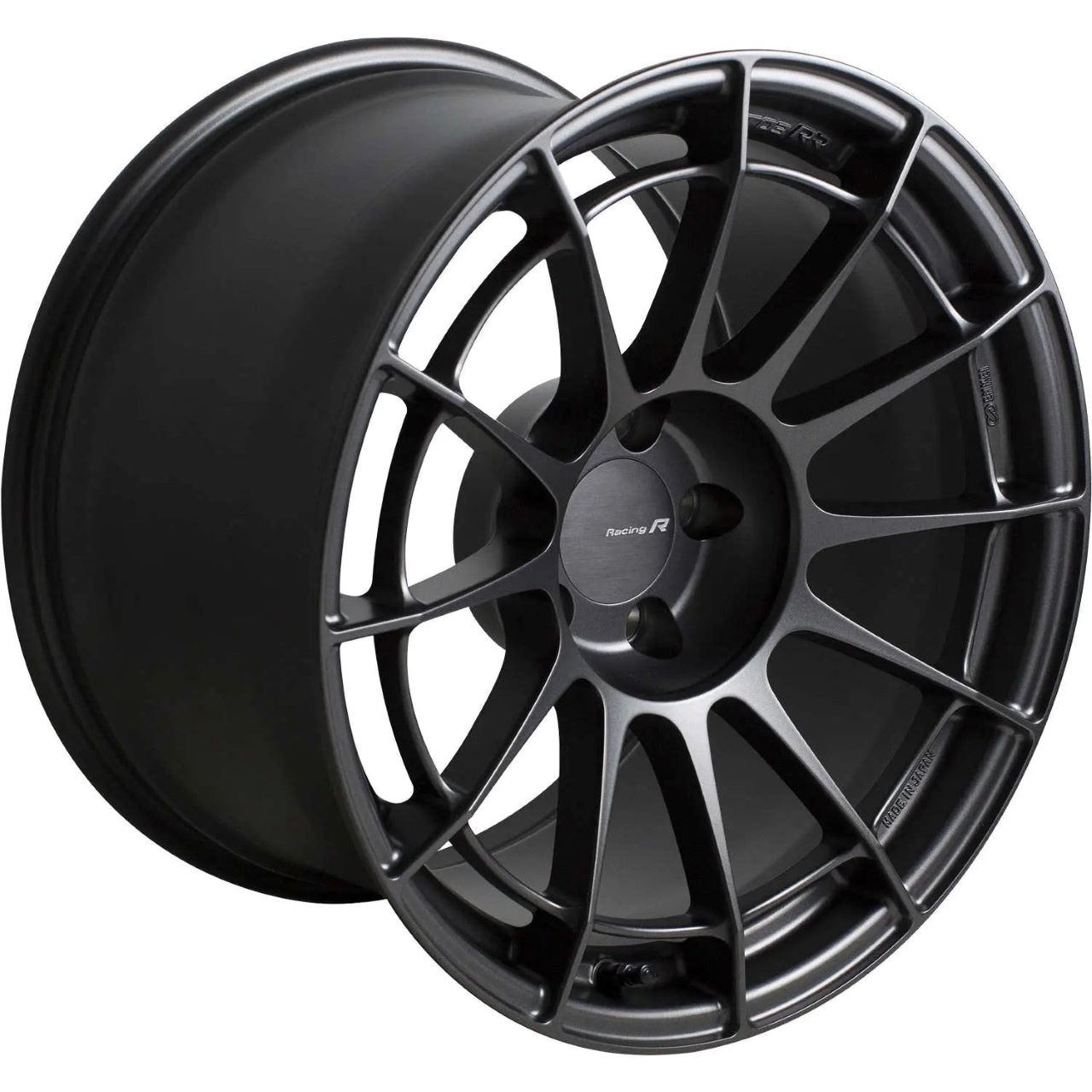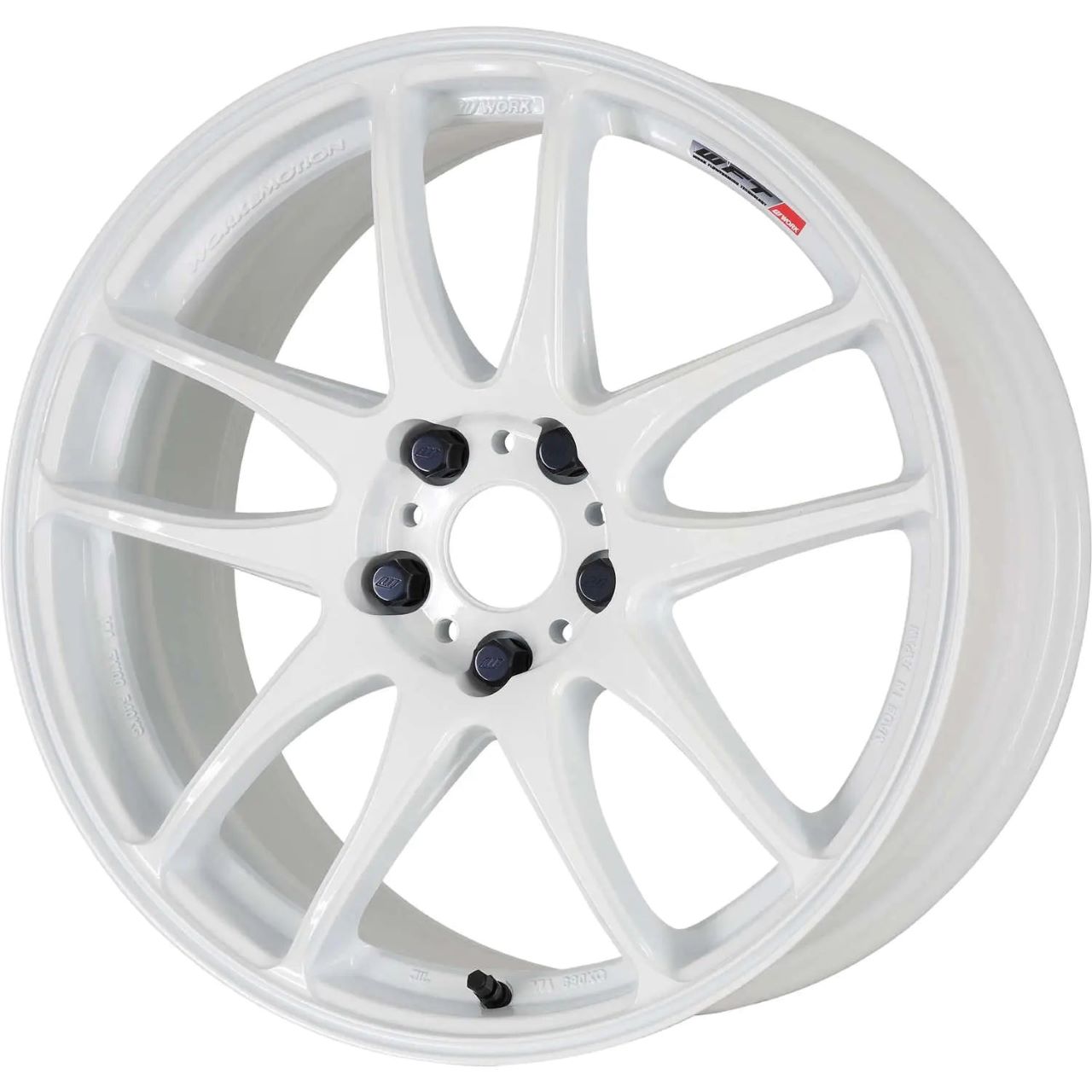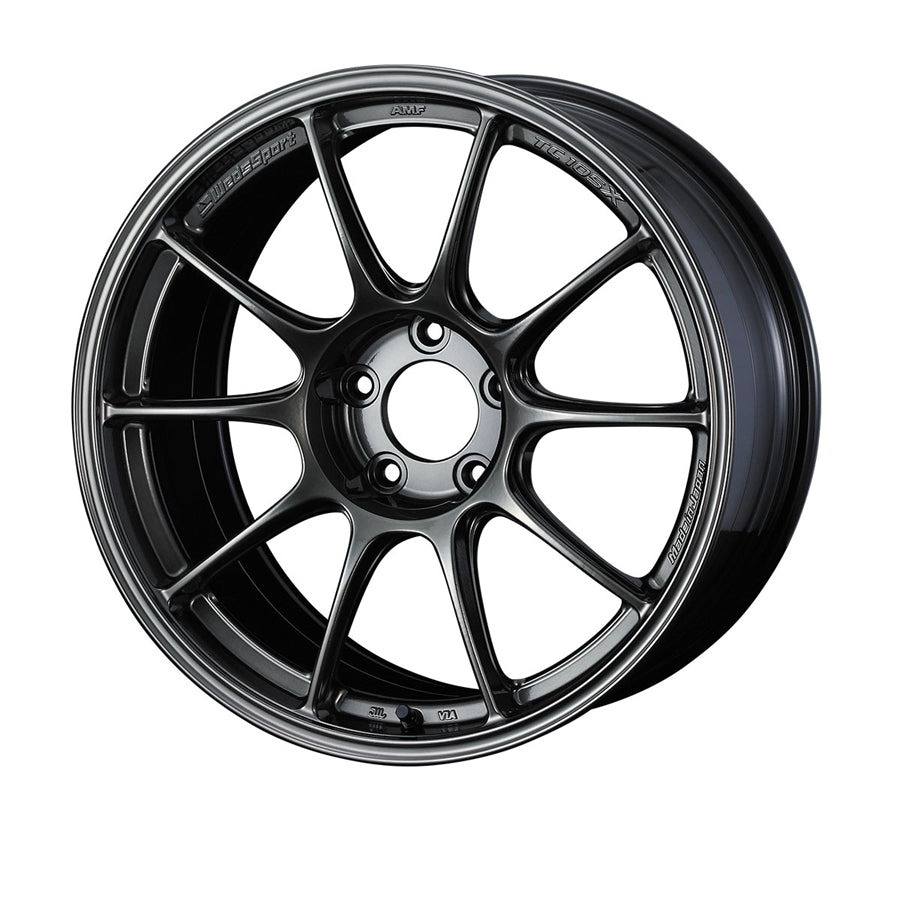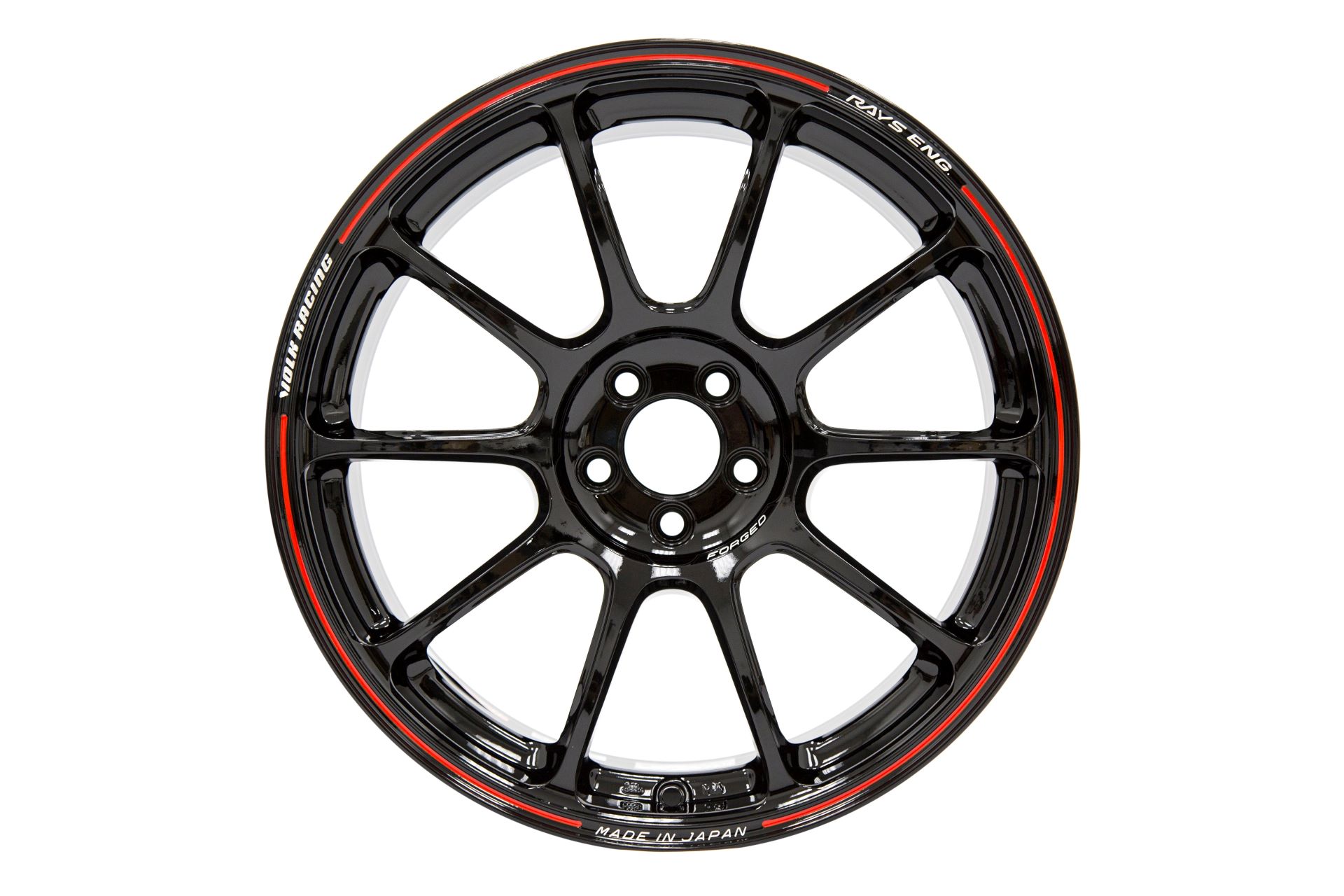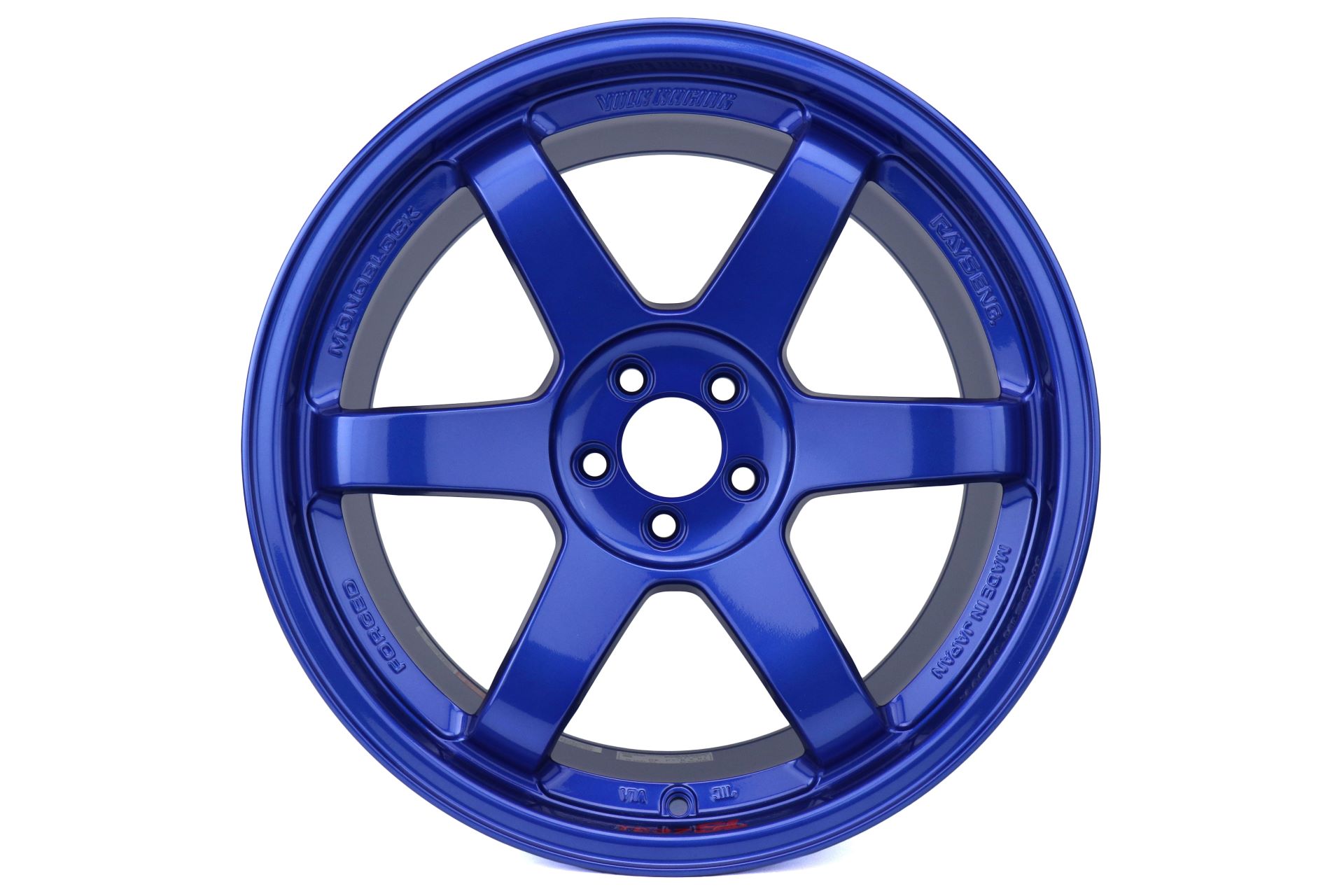Forged vs Cast - What Wheels Should You Get?
26 APR 2024 - Jeff Willis
FORGED VS CAST WHEELS
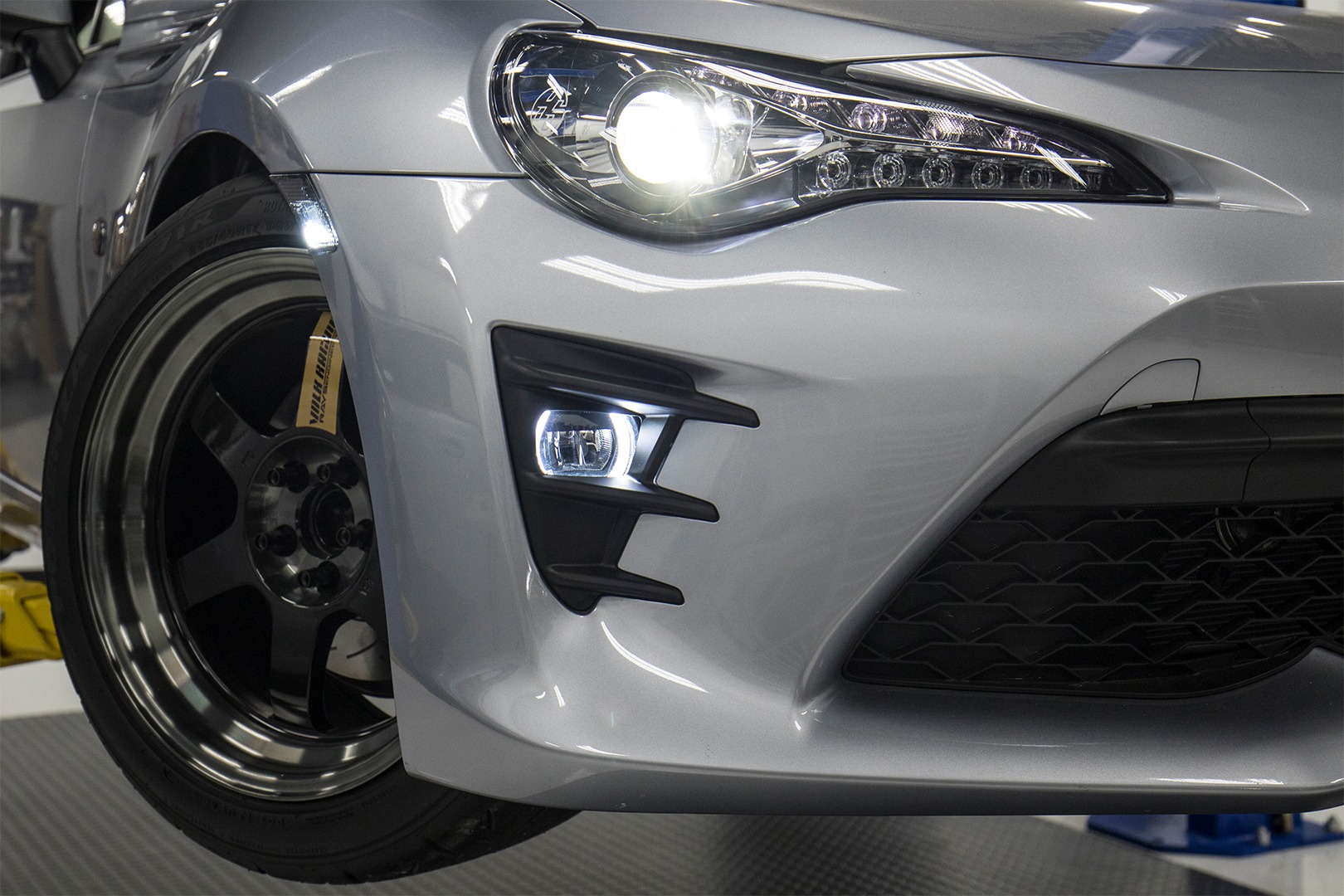
One of our favorite mods to perform to our BRZ, FR-S, or 86 is adding a set of custom wheels. The right set of wheels changes the exterior dynamic aesthetically, while the right offset, and a little extra width allows us to run a more aggressive tire for better grip. However, there are several key decisions that you must discuss in your head. You need to think about your budget because depending on what wheel you choose you may have to take out a second mortgage on your house. And then you need to narrow down what style looks best to suit your needs and your preference, then what color complements the exterior of your BRZ, so then you start doing the online thing, and can be met with sticker shock many times.
For wheels, prices can vary to put it lightly, but there are major swings as to why one wheel will cost $250 each, while another wheel can cost more than $1k each. One thing is for sure, is that when it comes to wheels, you get what you pay for. Now those expensive prices don’t necessarily reflect the brand name, although there are pioneered brands who have established more than several decades in the market, but for many times, it depends on the wheel construction.
By that, you have forged wheels, and then you have cast wheels. What is the difference? Why are forged wheels double, triple, and beyond the price of just normal cast wheels? The short answer is that they are stronger. The long answer is the manufacturing methods.
FORGED
Volk TE-37SL Hyper Green 18x9.5 +40 5x100
Whether it be BBS race wheels, CCW wheels, or other examples of forged wheels, we will use the highly decorated Volk TE37. The TE-37 is a timeless 6-spoke design initiated by RAYS Engineering, and it is highly utilized by professional race teams on a worldwide scale from JGTC, Time Attack, and race cars and teams invloved in the most prominent races such as Le Mans, you get the idea. The same TE-37 used in these race cars are available for customers and enthusiasts to use on their daily drivers, show cars, or weekend track cars as well.
Forging is the process where a manufacture takes a giant block of aluminum alloy, CNC and milling machines along with other advanced tooling robotics will carve the block into a shape of a wheel. A lathing process further defines the shape before it can enter the next phase of the manufacturing process. The same methods are used with smaller components such as centers for multi-piece wheels. Once the wheels take shape they are further inspected, machined, and thoroughly cleaned using the manufacturer’s suggested process before getting them shot-peened, or several media blasting treatments for polishing, or preparing them for powder-coating.
Wheels Boutique provides us with a fantastic bird’s eye view of how HRE manufactures their wheels. And you can see, they have millions of dollars’ worth machining, computer -controlled robots, drills, treatment machines. And it takes a great amount of time to completely finish the wheels just before final assembly.
For Volk Racing, they use their traditional method of fire forging for the TE-37. Starting with billet 6061 aluminum alloy blanks, they are heated to over 500 degrees Celsius to allow the metal to soften enough to get them into their designated shaped whether it be the TE-37, or other forged models. The TE-37 is shaped using mold-formed forging dies in 3 different stages. The forging press applies several thousand tons of pressure to strengthen the wheel. The secondary forging process focusses on the cross-sectional and center area. The area is hollowed out before entering the final proprietary shuttle die forging process. This gets the front and rear sections of the wheel into it’s dimensional shaping.
The wheel is then spun into shape using other Volk proprietary die methods. When the wheel is finally into shape. Volk continues more precision-controlled heat treatments to maximize the aluminum alloy’s key mechanical properties of tensile strength, proof stress, and elongation. Now the wheel is ready for the machining process where the bolt holes, and valve stem hole are drilled through. The edges of the spokes are de-burred and rolled out smooth out the edges. Then inside the wheel a proprietary knurl is machined into the inner edge to prevent tire slippage.
The wheels are then hand-polished to remove any mold forging, and hot-forging marks from the manufacturing process before getting shot-blasted. This reinforces additional strength while leveling the forged surfaces. Finally, the wheel can be chemically degreased, and prepared for powder-coating and diamond cutting.
Now that you have an understanding what is involved in the manufacturing process of forged wheels, the price for forged wheels can be justified due to the 7-figure machines used, the multiple steps needed to strengthen the wheels, and the several inspections that must be performed to ensure that there are no cracks or imbalances. However, not all forged wheels are created equal, as other forged brands have their own manufacturing methods, but are not too far off when compared to HRE, or RAYS Engineering, creators of the Volk TE37.
CAST WHEELS
The manufacturing of cast wheels is essentially described as pouring molten aluminum into a mold. Aluminum is heated above 700 degrees Celsius where it is a melted state where it is mixed with argon gas to further solidify the aluminum. Other metallic materials will be added along with blended flux to add more strength. The wheel mold is made using high-strength steel. Molten metal will then flow into the mold where it takes 7-10 minutes to solidify. Once cooled, the casting will go through multiple heat-treating processes to strengthen the metal. It is then submerged in water, then re-heat treated again at a higher temperature before getting trimmed from any excess debris. Then the wheel can go through a process making sure there are no cracks, that it’s air-tight, making sure that it is ready for powder-coated.
FLOW FORMING
Many advanced cast wheels are flow-formed which is a process where pressure is applied to the inner barrel during the spinning process. This will stretch and compress the aluminum which will provide the wheel with more tensile strength. By flow-forming cast wheels, this process strengthens cast wheels to similar levels that can be found in during the forged processing. Flow formed wheels provide the consumer with the best balance of strength and affordability when compared to forged wheels.
CAST WHEELS ARE A GREAT OPTION – BUT CHOOSE WISELY
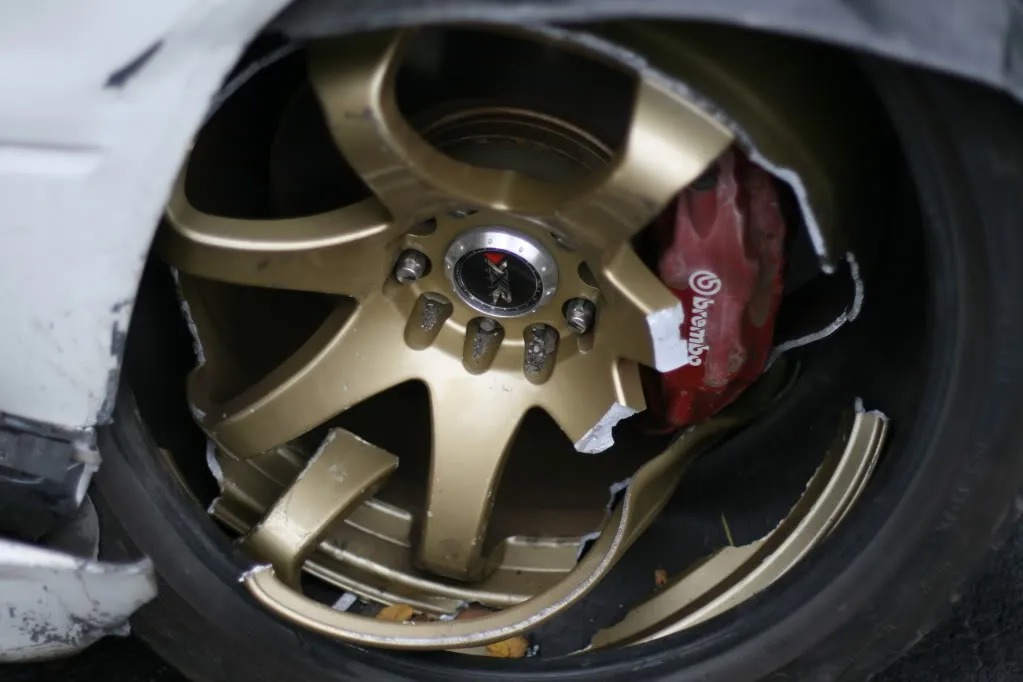
Listen, we understand that not everyone’s budgets are the same. And that rep wheels online are a great deal, they come in really awesome sizes, and depending on your taste, might look better than OEM wheels. But this is a huge gamble as rep wheels are made using the cheapest materials and casting methods. Basically, molten aluminum with air pockets tossed into a mold for fast and easy production for lower costs. The risk is that if you hit a pothole at high speeds, there have been plenty of documented instances where the spokes will break off from the barrel, putting your life at risk. These wheels are more prone to cracking, breaking, and they are cheap for a reason even though they must pass certain provisions to be approved for highway use.
The majority of us will buy cast wheels because they are half the cost of forged wheels, and that is completely fine. Now know that whether forged or cast, all wheels are not immune to damage. You can crack a forged wheel. But invest in your safety by getting a reputable brand such as Enkei, or WedsSport.
WHY FORGED WHEELS ARE USED FOR RACING
Aside from the strength, the reason why majority of race cars will have forged wheels is because when you are traveling at 100+ MPH, your wheels can get chewed up. The next time you are at your local weekend track event, and you see a random Porsche GT3 cup car in the corner, or whatever gutted purpose-built race car, look at the wheels. The faces will look pitted because race cars are exposed to track debris, small pebbles, going off track, and car parts. Sometimes rubbing is racing is true, and when your wheel contacts the wall, or if one of your wheels contacts another wheel with the car next to you, that high-spinning energy making contact will dig into each other very quickly. Cast wheels when compared to forged in these extreme circumstances can’t sustain the damage – at least during multiple times. But then there are other reasons such as for multi-piece wheels, inner or outer barrels can be changed to accommodate sizes or damage, and the centers can also be switched out to accommodate certain offsets.
Cast wheels can be used for racing. They are perfect for autocrossing. But for wheel-to-wheel racing where the track you’re at has long straights that end with sweeping curves that keep you at higher speeds while enduring the countless shifts in weight your car throws at them, make sure you have a good set that has high-tensile strength.
THERE’S REALLY NO VERDICT
Forged wheels are going to be a better choice when it comes to strength, the availability in aggressive sizes depending on the manufacturer, and they are going to be lighter. We now have a pretty clear idea of the highly labor-intensive process it takes to forge manufacture a set of wheels. Forged wheels will be safer for racing as you need that extra strength, and forged wheels are easier to repair when it comes to fixing damage as they will bend as opposed to crack open or have chunks break off with cast wheels. This does not mean that forged wheels don’t crack because they certainly can. If you’re in a position to invest in some TE37’s, then invest in your happiness.
However, cast wheels are never overlooked. There is a reason why Enkei NT01’s, NT03, or several other of their models are found on grassroots racer’s cars. They are strong, relatively lightweight, and they are available in a variety of aggressive sizes. And there are many great brands suck as Advan, Work, WedsSport that offer both versions of wheels that can handle both track and street duties.
Above anything else, really you should invest in a quality set of tires.
GREAT CAST WHEEL OPTIONS:
Enkei NT03RR Gunmetal 18x9 +40mm 5x100
Work Wheels Emotion CR Kiwami Deep Concave White 18x9.5 +35mm 5x100
WedsSport TC105X EJ-TI 18c9 +45mm 5x100
GREAT FORGED WHEEL OPTIONS:
Volk Time Attack ZE40 Black/Red +42 5x100
Volk TE37 Hyper Blue 18x9.5 +40
